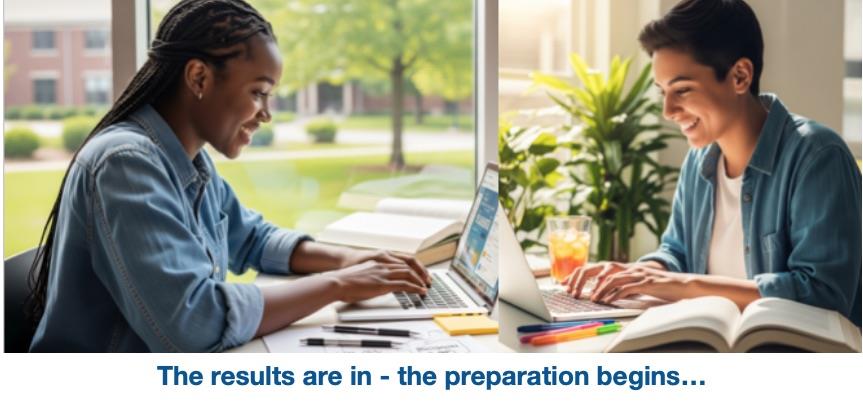
The results are in - the preparation begins...
As the academic year closes and results are announced, students can now look forward to a well-earned break from the structured routines of school or college. While it's essential to recharge and enjoy the summer, for many students - particularly those with SEND - the extended break can pose challenges beyond rest and relaxation. One of the most prevalent concerns is the summer learning loss, also known as the 'summer slide' - a well-documented regression in academic skills and knowledge that occurs during prolonged time away from structured education.
While this phenomenon affects all students, learners with SEND may experience even greater setbacks, particularly in areas like reading, writing, and executive functioning. However, the summer doesn't have to be a period of academic stagnation. With the right strategies in place, summer can become an opportunity to reinforce existing skills, build new ones, and better prepare students for the transition to university-level learning.
One highly effective solution is touch typing.
The Unseen Benefits of Touch Typing for Students with SEND
Touch typing is far more than just a clerical skill. For students with SEND, it offers a transformative alternative to handwriting, or typing with just two fingers, and can serve as a powerful academic equaliser. It provides a new, more accessible medium for expressing their knowledge and keeping pace with peers. Assessors are increasingly recommending typing skills, and for good reason:
*Enhanced Writing Fluency and Speed: Imagine thoughts flowing directly from the brain to the screen. Subconscious touch typing enables this, as it allows students to focus on content and structure, and express their ideas rather than grappling with handwriting or searching for keys. This fluency can dramatically improve the quality and speed of written work.
*Improved Reading Comprehension and Spelling: Typing real words reinforces spelling through repetition and muscle memory. As learners no longer need to look down at the keyboard, they remain visually engaged with their writing, improving both reading flow and comprehension.
*Reduced Cognitive Load & anxiety: Touch typing engages multiple areas of the brain, improving focus, concentration, and even problem-solving skills. For learners with dyslexia, dyspraxia, or processing difficulties, it alleviates the mental burden of navigating the physical act of writing, freeing cognitive resources for planning and content creation – subsequently reducing anxiety. It's a motor learning experience that builds muscle memory, a skill that, once acquired, lasts a lifetime.?
*Increased Productivity, Independence, and Confidence: Mastery of typing enables students to produce written work and complete assignments more efficiently, fostering greater autonomy. It frees up time for other activities or deeper engagement with their studies, helping them transition more confidently into independent study at university.
Making the Most of Summer with KAZ
The summer holidays provide an ideal window for students to dedicate focused time to learning touch typing. Even short, consistent sessions of 15-20 minutes a day will lead to significant progress. This active engagement prevents the 'summer slide' by keeping academic skills sharp and fresh.
Conclusion
By recommending touch typing, you can transform the summer break from a period of potential learning loss into an opportunity for growth, development, and the acquisition of a crucial skill that empowers students with confidence and independence for the next stage of education. A skill that will support them for life.
Copyright KAZ Type Limited 2025. KAZ is a registered trade mark of KAZ Type Limited.
Developed by : STERNIC Pvt. Ltd.